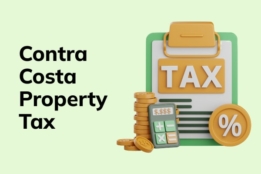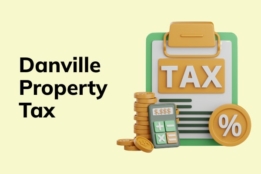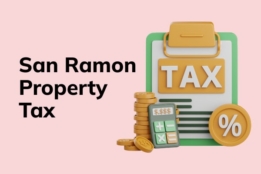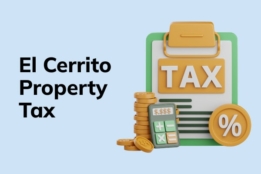Table of content
How To Rent Your House In California?: The First Steps
If you are moving out of your home, you have the choice between selling or renting it out. The initial steps of renting out a house in California are straightforward. You must assess market conditions to identify ideal locations to target. Consider rental rates, financing, and insurance. Finally, understand your responsibilities as a landlord, beginning with local laws and permits.
Do I Need A License To Rent My House In California?
California law does not require a specific license to become a landlord. However, regulations and requirements can vary between different cities and counties. If you choose to use a property management company, which is a service we offer, they must be licensed. Therefore, it is important to conduct thorough research and ensure full compliance with the relevant laws and regulations concerning rental properties in your area. We can provide guidance on this matter and connect you with an attorney or local authority for expert advice.

Can I Rent Out My First Home In California?
It is possible to rent out your primary residence, but you will need to educate yourself on how to rent your home in California. There are certain considerations and rules to be aware of, including:
- Limitations imposed by local ordinances.
- Homeowners association rules.
Again, it is recommended to do your due diligence and understand the local regulations and requirements in your area. This is relevant whether you want to rent out your entire home or take in a lodger for a single room. Our team of real estate professionals can assist with this, or we can connect you with someone from our extensive network.
How Long Do You Have To Live In The Property Before Renting It Out In California?
There are no specific occupancy requirements for becoming a landlord in California. However, if you have a residential mortgage for the property, you should consult with your lender before proceeding with plans to rent it out. Many mortgage agreements contain clauses that restrict property rental, and it’s essential to be aware of potential local ordinances and homeowners association rules.
Thorough research is crucial to understanding the process of renting out your home in California. Additionally, if you’re relocating and require assistance with purchasing a house in your desired destination within the state, feel free to reach out to us for guidance.
How To Become A Landlord In California
There are a few key steps for how to rent out your house in California:
- Do your market research to determine competitive rental rates for your home.
- Prepare the property to meet the required safety and habitability standards
- Educate yourself on local ordinances and homeowner association rules.
- Check with your lender that you are permitted to rent out your property.
- Find a real estate agent to help with drafting lease agreements, advertising the property and tenant screening. You may also wish to utilize property management services.
- Understand how the arrangement impacts things like property tax and insurance requirements.
Landlord responsibilities vary by location, so you must conduct the necessary research before embarking on this endeavor.
How To Screen Tenants In California?
When screening tenants in California, you must evaluate potential tenants without breaching requirements like fair housing laws and privacy laws. It’s important to establish compliant rental criteria for screening tenants, and you should plan this when doing research into how to rent your house in California. Screening steps can include:
- Drawing up a rental application form for prospective tenants to fill out.
- Carrying out credit checks and income verification.
- Looking at people’s rental histories and performing criminal background checks.
- Contacting references.
- Keeping thorough records of all interactions and providing written denials for applicants you refuse.
It is important to adhere to state and federal laws when screening tenants in California. If you are concerned about getting this right, you could leave tenant screening up to your real estate agent. They will have the experience and knowledge to carry out tenant screening in a compliant and efficient manner.
Complying With California Rental Laws
Compliance with rental laws is paramount when considering how to rent out your house in California. You will have certain obligations and legal rights as a landlord, which will determine what you can and cannot do. Make sure you thoroughly understand these before embarking on this endeavor.
Understanding The Landlord Law In California
As a landlord in California, you will have obligations and rights. Learn these early on in the process to inform your entire planning process. Your obligations are to provide fair housing in accordance with state and federal laws, and you must ensure the property remains habitable at all times. There are rules you must follow regarding security deposits, and you must give proper notice before entry, eviction or rent increases.
Your rights as a landlord in California revolve around:
- Rent collection
- Property inspection
- Evictions
- Setting lease terms (within legal limits)
This is a general overview of the landlord law in California. It’s always important to adhere to local ordinances and lease agreements, so educate yourself on regulations in your area. Legal counsel or local housing authorities are good points of contact for this.
What A Landlord Cannot Do In California?
There are a few common illegal practices that occur with landlords in California. You should avoid doing these things at all costs:
- Discrimination: If you discriminate against tenants based on race, religion, nationality, disability, gender or any other protected category, you are in breach of fair housing laws.
- Retaliation: You cannot retaliate against tenants who exercise legal rights like reporting code violations.
- Unlawful entry: There are proper notice requirements in place if you wish to enter a rental unit in a non-emergency.
- Rent control: If there are rent control ordinances in your locals, you must not exceed the allowable rent increases.
Another common thing is failure to maintain habitability. These things are unacceptable landlord practices and you must not allow them to happen.
Three Key Rights Landlords Have In California
Here are three fundamental rights of landlords that you should be aware of when researching how to rent out your house in California:
- Right to collect rent: This must be done in accordance with the terms of the lease agreement.
- Right to enter the property: This is subject to proper notice rules, but you have the right to enter the property to conduct inspections or repairs.
- Right to evict: You can initiate the eviction process if tenants violate the terms of the rental agreement. There are specific legal procedures that must be followed.

The New California Rental Law: What You Need To Know
In 2019, the California legislature passed the Tenant Protection Act. The goal of this is to protect tenants from unjust evictions and unfair rent increases. It stipulates the following:
- Annual rent increases are capped at 5% plus inflation.
- Landlords must provide just cause to terminate a tenancy for certain rental properties built before 2005.
This legislation was passed in response to rising house prices across the state of California.
How To Handle Security Deposits In California?
Security deposits are a crucial consideration when learning how to rent out your house in California. Landlords can collect security deposits, typically limited to 2 months’ rent for unfurnished properties or 3 months for furnished ones.
You must keep the deposit in a dedicated account and provide a written receipt to the tenant. Upon the termination of the rental lease, you have 21 days to return the deposit. If any deductions are necessary, you must furnish an itemized list. Deductions should cover damage to the property beyond normal wear and tear, and failure to comply with these rules may result in penalties.
Dealing With Evictions: Understanding The Law In California
The basic process for evicting a tenant in California is as follows:
- Provide proper notice in accordance with local regulations (for example, 3-day Pay or Quit notice or 30-day Notice to Terminate Tenancy without cause).
- If the tenant doesn’t comply, you must file an unlawful detainer lawsuit.
- The tenant must be served with the summons and complaint.
- Both parties will attend a court hearing.
- If the judge rules in your favor, you get a writ of possession to remove the tenant.
- Execute the eviction, involving law enforcement if necessary.
What Is The Process For Setting Rental Rates And Managing Finances?
To determine your rental rates in California, conduct local market research to establish a fair rate. Keep in mind that there are rent control laws that impose limits on the amount you can charge and the permissible rent increases. Additionally, be aware of the tax implications and insurance considerations.
Rent Limits In California: What You Need To Know
California has statewide rent control laws that apply to most residential properties built before January 1, 2005. Cities like Los Angeles, Richmond, Oakland, and more are subject to these rules. In some locales, the regulations may be even stricter, but here is the basic guidance:
- Annual rent increases are capped at 5% plus inflation.
- Landlords must provide just cause to terminate a tenancy for certain rental properties built before 2005.
Is It Legal To Double Rent In California?
Simply put, it is not legal to double rent anywhere in California. The state has specific laws against rent gouging, restricting rental increases in accordance with strict legislation. If you are learning how to rent out your home in California, you must understand that rent increases can never be arbitrary or exorbitant, and they must adhere to the rent control laws described above.
How Much Tax Do You Pay On Rental Income In California?
Both federal and state income tax apply to rental income in the state of California. This means that the state imposes income tax on rental income, charged in accordance with the progressive income tax rates that apply to different income brackets.
If you are learning how to rent out your home in California, you may want to consult with a tax professional to learn some strategies. Keeping your income tax to a minimum is a great way to maximize your profits, and they may be able to advice on things like:
- Deductions
- Credits
We can connect you with a trustworthy tax professional if you wish to get this advice.
How Does The IRS Know If I Have Rental Income?
When you file your federal income tax return, you are legally required to report all income you receive, including rental income. A property management company typically issues a tax form detailing the rental income you have received, and this information is also sent to the IRS.
It is extremely ill-advised to attempt to collect rental income without reporting it to the IRS. Even if you are not using a property management company, they can find out through:
- Audits
- Data matching techniques
- Whistleblower reports
- Property records
Insurance Considerations For Landlords In California
Taking out the necessary insurance to be a landlord in California is important. Some are legal requirements, while others are prudent measures to provide financial protection in the event that things go wrong.
- Insurances for landlords include:
- Landlord insurance
- Liability insurance
- Rent loss insurance
- Umbrella insurance
- Flood/earthquake insurance

Renting Out Through Different Platforms
There are other, non-mainstream platforms through which you can rent out your home in California. These include Airbnb, Section 8 and renting out apartments. We can offer advice on these if you wish to explore them as options.
How To Rent Out Your Home In CA On Airbnb?
It is possible to rent out your home through Airbnb in California, but you must consult local regulations regarding short-term rentals. The process looks like this:
- Create a listing on Airbnb
- Determine your rental rate
- Prepare the property
- Create house rules for guests
- Manage bookings
- Review and improve your offering to get good reviews
- Handle payments
- Always host responsibly
How To Rent Out An Apartment In California?
The process for renting out an apartment in California is essentially the same as renting out a house. If you are looking to sublet an apartment that you rent from a landlord, this is generally legal in California. However, you should check that it is permitted in the lease agreement and make sure your landlord is aware of your plans.
Renting Your Property As A Section 8 Landlord In California
Becoming a Section 8 landlord can be a great way to help out lower earners in California. Many people who earn close to the minimum wage find it difficult to rent privately in the state. If you want to help people like this, the process is as follows:
- Contact your local Public Housing Authority
- Ensure your home meets the requirements for Section 8
- Request a property inspection
- Set a fair rent within Section 8 limits
- Complete the paperwork and contracts
- Advertise your property as Section-8 friendly
- Screen tenants
- Sign the lease agreement from you chosen tenant and begin receiving rental payments from the PHA
The process may vary by location. There is usually an additional administrative burden as the Section 8 paperwork can be time-consuming, but it is a rewarding endeavor that can really help people in need.
Frequently Asked Questions
Do I Need A License To Rent My House In California?
No, there are no licensing requirements for landlords in California.
How Much Tax Do You Pay On Rental Income In California?
You will pay both the state and federal income tax rates on rental income in California. This means the more you earn, the higher your rate of tax, so consult a tax professional to explore strategies.


































































